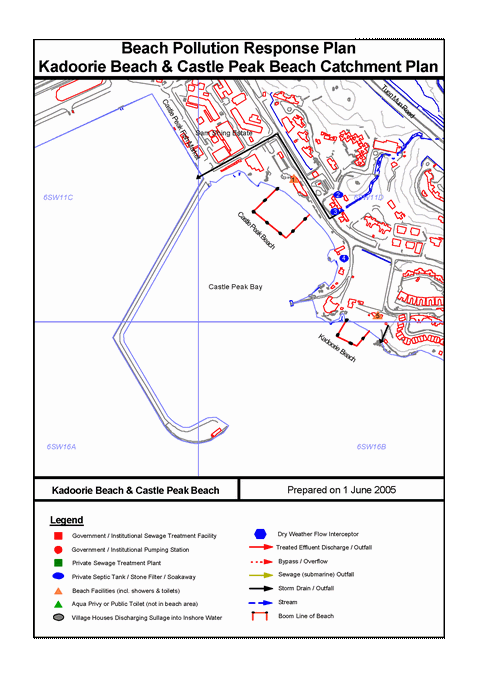| Handling Emergencies |  |
While a major purpose of the beach water quality monitoring programme is to chart long-term trends and changes in water quality, there are times when the programme alerts the Government and the public to sudden and unexpected deterioration due to pollution incidents. In such cases, the EPD in collaboration with other Government Departments brings into operation its Beach Pollution Response Plan, which is designed to call a series of anti-pollution measures into play quickly and effectively. This Plan was first formulated in 1997, after a couple of serious pollution incidents in that year drew attention to the need for an integrated system that could respond to emergencies and unexpected events and prevent their recurrence. Fortunately, since 1997 there have been no further major pollution incidents.
In a nutshell, the Beach Pollution Response Plan drew up a series of formal steps to be taken in response to any beach water pollution incident involving discharge (accidental or deliberate) of polluting material, and breakdown of or damage to sewerage systems and outfalls. The plan lays out clear guidelines for the EPD and other Government Departments on their responsibilities and lines of communication in such cases, and enables action to be taken directly and quickly. For serious incidents the Plan requires the EPD to send out an emergency inspection team; but in all cases, it specifies how the EPD should handle its response and the steps it should take. The introduction of the Plan in 1997 has improved communication and response times all round, and helped minimise and control pollution incidents occurring since then.
